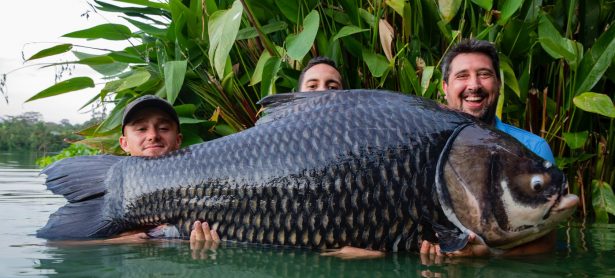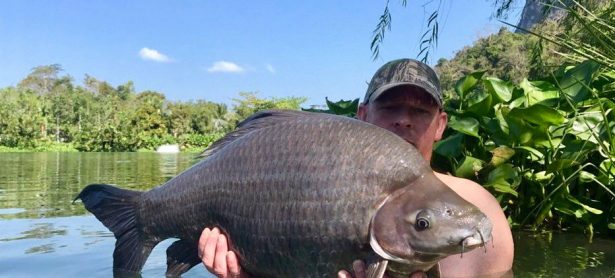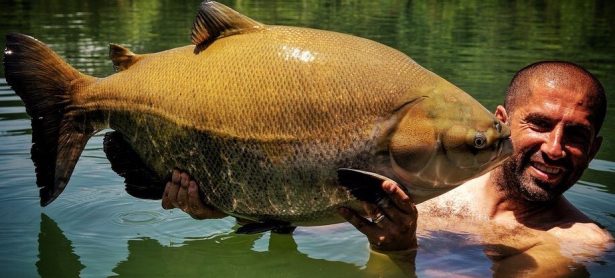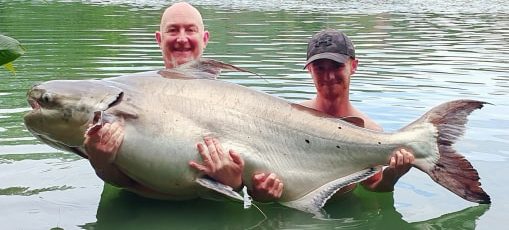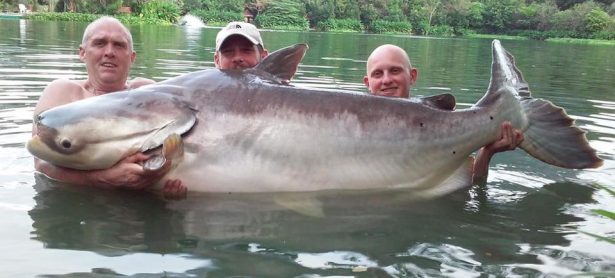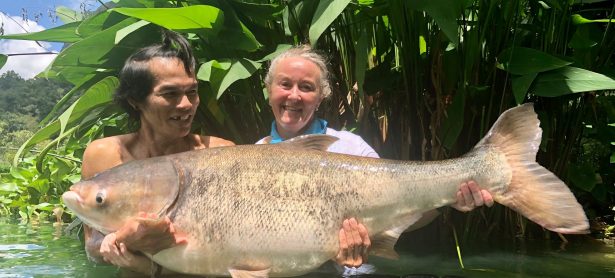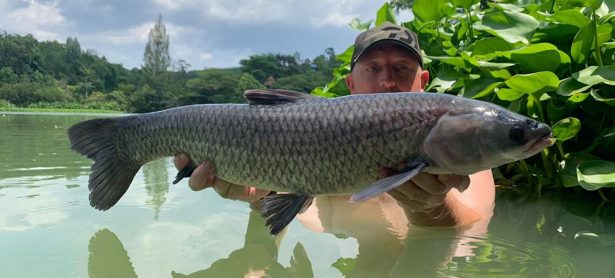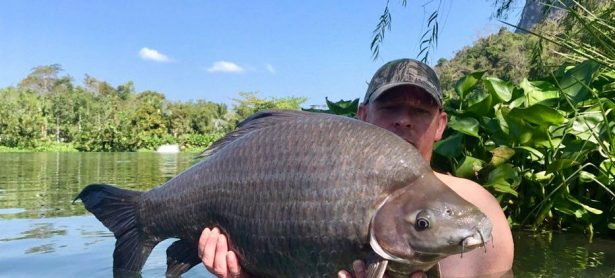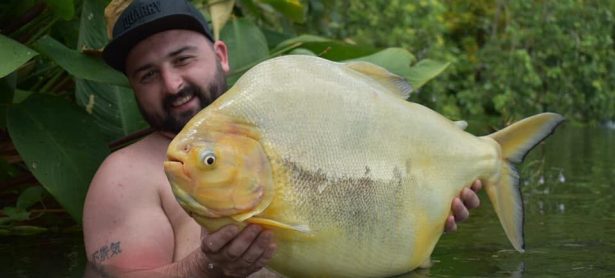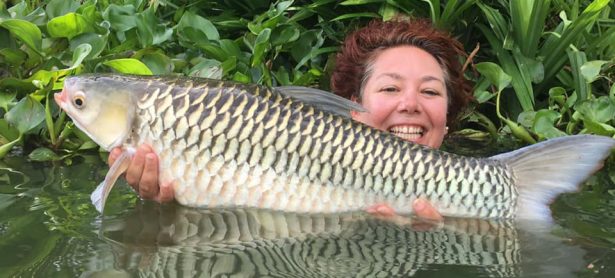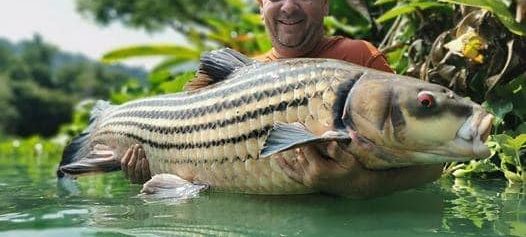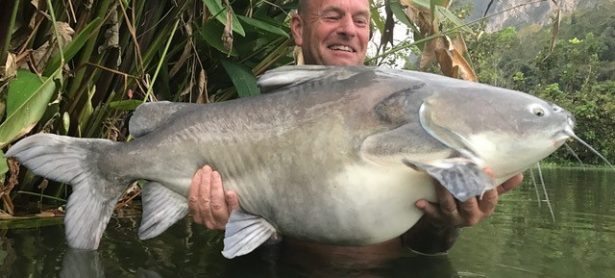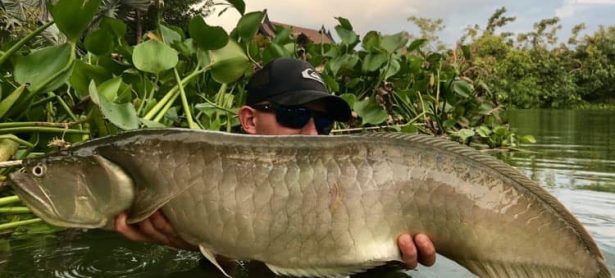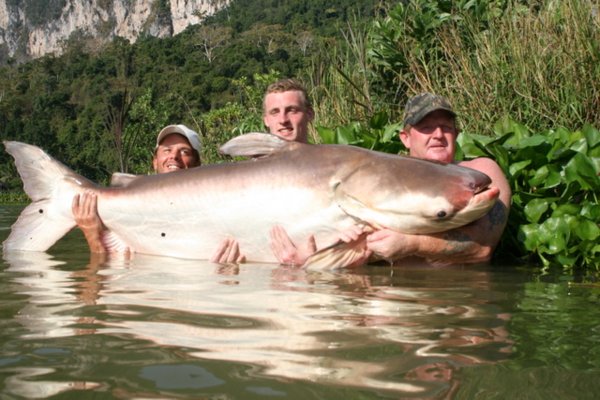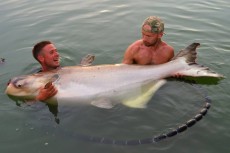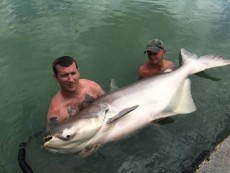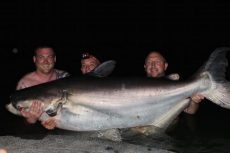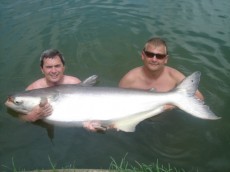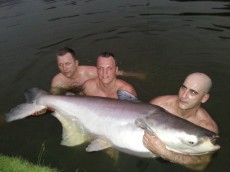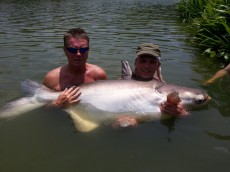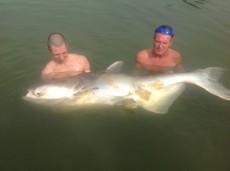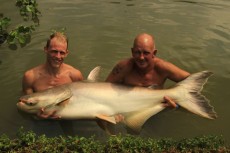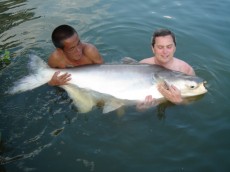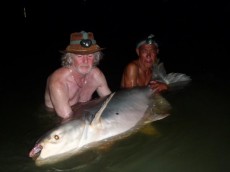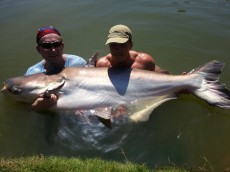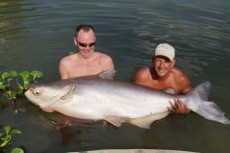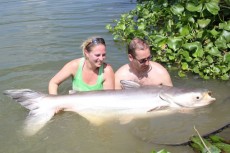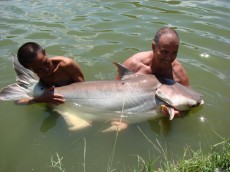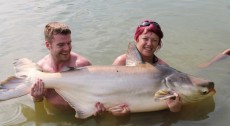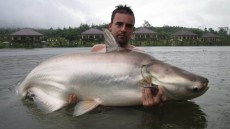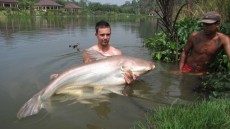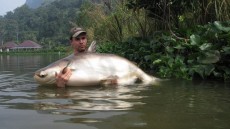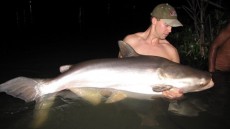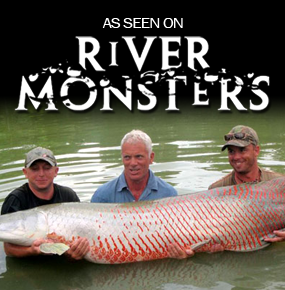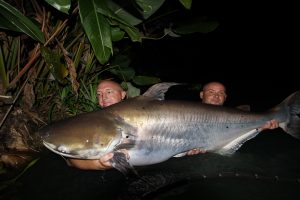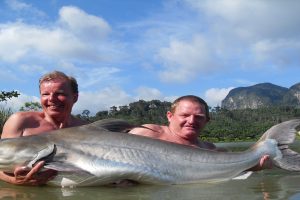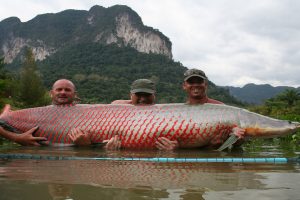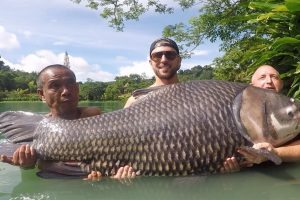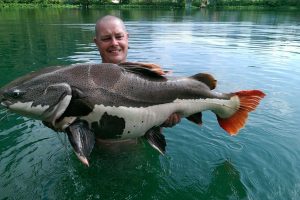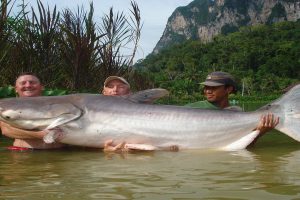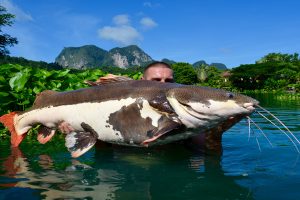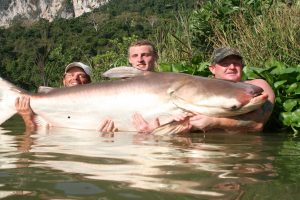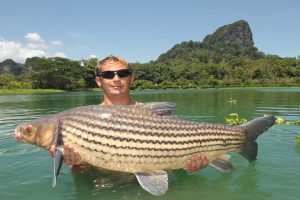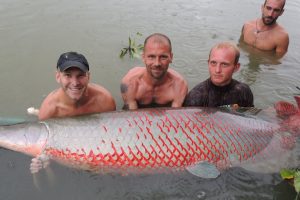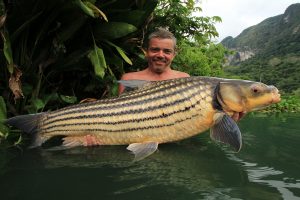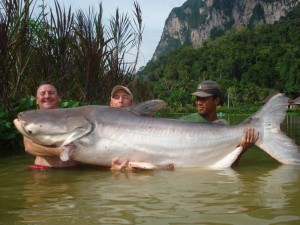 Name: Mekong catfish.
Name: Mekong catfish.
Species: Pangasianodon gigas.
Thai name: Pla buk.
Biggest known fish: 300lb
Lake rod caught record: 280lb
Max length in excess: 3m.
Max weight: 300kg.
IGFA record: 117.933kg (260lbs), caught here at Gillhams Fishing Resort.
Diet: Plankton, plants, shrimp, sticky rice, boilies, pellet, cereal and maize.
Gillhams Fishing Resort in Krabi are the holders of the IGFA world record with a fish caught by David Kent on 29th November 2010 weighing 117.933kg (260lb) We also held the previous last two records with different fish caught by Joe Ball on 14th December 2009 and Rob Maylin on the 28th May 2008 weighing 84kg. (185lb 2oz.)
To fish for our Mekong catfish we recommend pellet or boilies and pop-ups, also maize fished in conjunction with a method feeder. Using a marker float find a plateau and fish over this feature using a float set at around one meter, loose feed pellet every five minutes feeding little and often brings the best results. Mekong catfish will also feed on the bottom use a pop-up, pellet or maize and once again find your spot and keep topping up the bait, as these are shoal fish with huge appetites.
The Mekong catfish is one of the hardest fighting fish in freshwater; the more you pull the more they pull back. At all times, as with all fishing here, keep checking your drag settings, as one mistake and the result is a lost fish.
Our Mekong range from 90lbs to 300lbs, and once hooked expect a fight of at least 45 minutes! Also our Mekongs were bought up on a diet of pellet, which was unheard of as a bait in most fisheries until we started using them. We even had one caught in December 2007 on a tilapia livebait, and this was one of the only Mekong we or our fish suppliers have ever heard of to fall to live bait.
In the wild the Mekong catfish is regarded as a plankton feeder. Our lake has an obscene amount of shrimp – we can net 2kg inside five minutes at night, also at certain times of the year we have huge amounts of zoo plankton. The Mekong, as with all our fish, get preoccupied on this nutritional food source, making them hard to catch, but lots of bait in a concentrated area will switch them onto your bait. The Mekong is one of the hardiest species in Thailand, but take note of our guide’s advice.
General facts on the Mekong catfish:
Mekong giant catfish, the world’s largest scaleless freshwater fish, have very low-set eyes and are silvery dark grey. They are toothless herbivores who live off the plants and algae in the river. Juveniles wear the characteristic catfish whiskers, called barbules, but these features shrink as they age. Highly migratory Mekong catfish require large stretches of river for their seasonal journeys and specific environmental conditions in their spawning and breeding areas. They are thought to rear primarily in Cambodia’s Tonle Sap Lake and migrate hundreds of miles north to spawning grounds in Thailand – they will not spawn in still water. They are bred artificially on fish farms such as our friend Mr Toe’s, who is involved with the restocking programme for the Mekong river.
We only buy our Mekong from a reputable source such as Mr Toe, and unlike some commercial fisheries none of our fish of any species have been taken from the wild.
Once plentiful throughout the Mekong basin, population numbers have dropped by some 95 percent over the past century, and this critically endangered fish now teeters on the brink of extinction. Overfishing is the primary culprit in the giant catfish’s decline, but damming of Mekong tributaries, destruction of spawning and breeding grounds, and siltation have taken a huge toll. Some experts think there may only be a few hundred adults left in the wild today, and international efforts are underway to save the species. It is now illegal in Thailand, Laos, and Cambodia to harvest Mekong catfish. On 9 June, Thailand marked King Bhumibol Adulyadej’s 60th year on the throne. A crowd of over half a million people gathered in the nation’s capital, Bangkok, prisoners were released, and fishermen in the north of the country declared they would no longer catch the Mekong giant catfish.
Instead, they will hand over their nets to the government, in return for $500 per net. In a further bid to safeguard the species, the Thai Department of Fisheries has released approximately 10,000 captive-bred individuals into the Mekong river since 2000. However, enforcement of fishing restrictions in many isolated villages along the Mekong is nearly impossible, and illicit and bycatch takings continue along with sales to commercial fisheries. The largest catch recorded in Thailand since record-keeping began was a female measuring 2.7m in length and weighing 293kg (646 lb). This specimen, caught in 2005, is widely recognized as the largest freshwater fish ever caught. Thai Fisheries officials stripped the fish of its eggs as part of a breeding programme, intending then to release it, but the fish died in captivity and was sold as food to local villagers.



